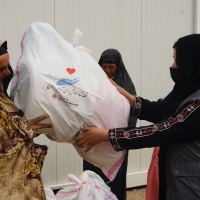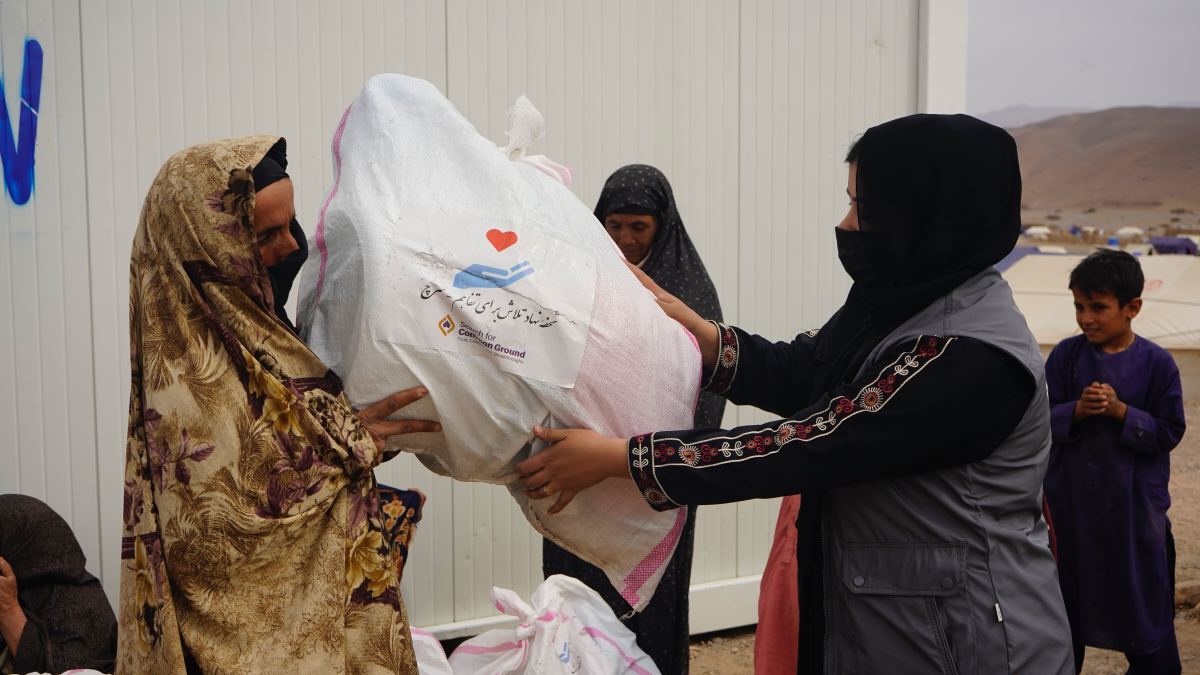The first time the ground started shaking, you thought it was a bomb. You pulled your two daughters close, one nestled on each side, and the three of you huddled in a corner of your mud brick house, waiting. As the earth continued rattling, you hoped the bomb would spare your meager crops, just harvested from the fields. The ground shook some more, as if a giant were stomping past your door, before your roof caved in.
You remember falling, and you remember thinking, how could I be falling? Wasn’t I already sitting on the floor? You remember a small hand sliding out of yours as you descended into dirt-chalky air.
You remember coming to. You remember the darkness. How your head throbbed, and how you couldn’t breathe. You wanted to sleep, but you heard Amina, your eldest, screaming your name. You drifted off, but her screams pushed you to wakefulness. You tried to move towards her voice, but the earth was everywhere: in your ears, in your nose, in your mouth. You tried to move your arm, but you couldn’t. You told your brain to move your arm, but it didn’t. Only your eyes could move, but there was nothing to see.
From somewhere above your head comes a muffled thud. There are scratching noises and then another thud. The thuds come more quickly, like escalating rain from an angry storm. You feel a rush of air and realize there is some light. A small hand, fingernails torn and bloody, seems to bring you the light. The hand moves faster, pawing at mud and rocks, letting in more air, letting out more dark. You hear another shout, this one frantic, demanding. Suddenly, there are many more hands, pawing, scraping, gouging at the dirt. As the space above your head widens, you understand that you are somehow both in and under the earth.
Time slows. As if watching a movie, you see your body freed from what was once your house. You are lifted out of mounds of soil and placed onto different mounds of soil. All around you are small hills of rocks and soil. There are no homes. There are no carpets. There are no water jugs, no eggplants, no potatoes. You listen for the bleat of your sheep, but what’s left of the fields is silence.
Amina comes to you, her dirt-sept face streaked with tears. She lies down next to you and curls into your side. “Where is Farah?” you ask, and your voice shakes. Amina buries her head in your thigh.
It will be hours before Farah’s body is recovered as the sky and the mountains bear witness. You shake your head at the irony of unburying a body from the rubble only to rebury it in a grave a little later. When the ground shakes again, you and Amina hold onto each other, unable to breathe.
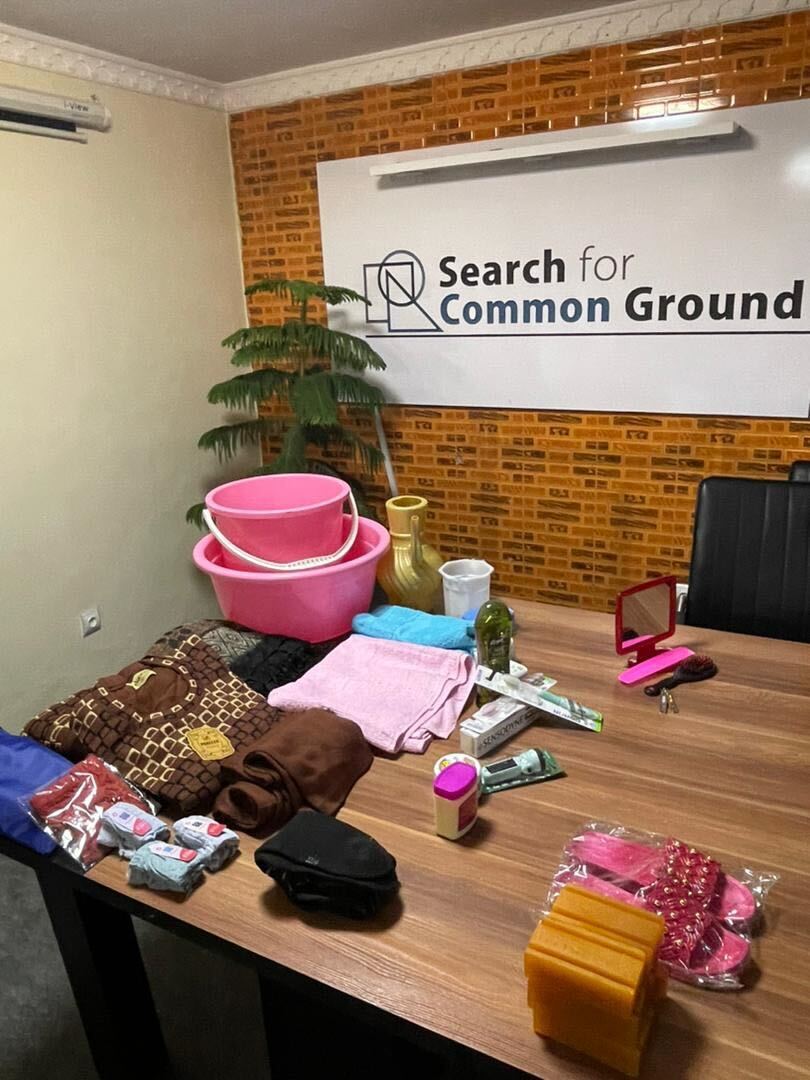
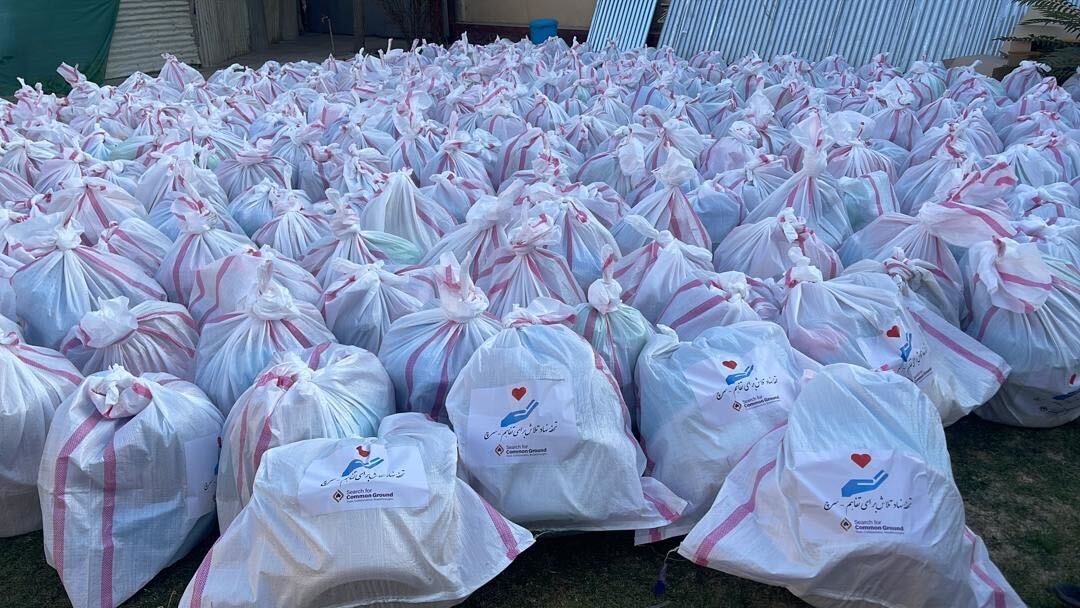
*
When multiple earthquakes decimated Afghanistan last month, you showed up. Thanks to our community of peacebuilders, our partners on the ground, and you, 14 Afghan female activist volunteers brought 500 hygiene kits to earthquake survivors in Herat. You helped furnish those kits with warm shawls, socks, and slippers, knowing how cold Herat’s nights are this time of year. You included reusable menstrual kits, storage containers to hold water or wash clothes, towels, soap, shampoo, toothbrushes and toothpaste, face cream, Vaseline, and nail clippers. Our community of peacebuilders packed these dignity-restoring items in a reusable woven bag that can be used to insulate tent floors.
But you did something else. You put the whole person first.
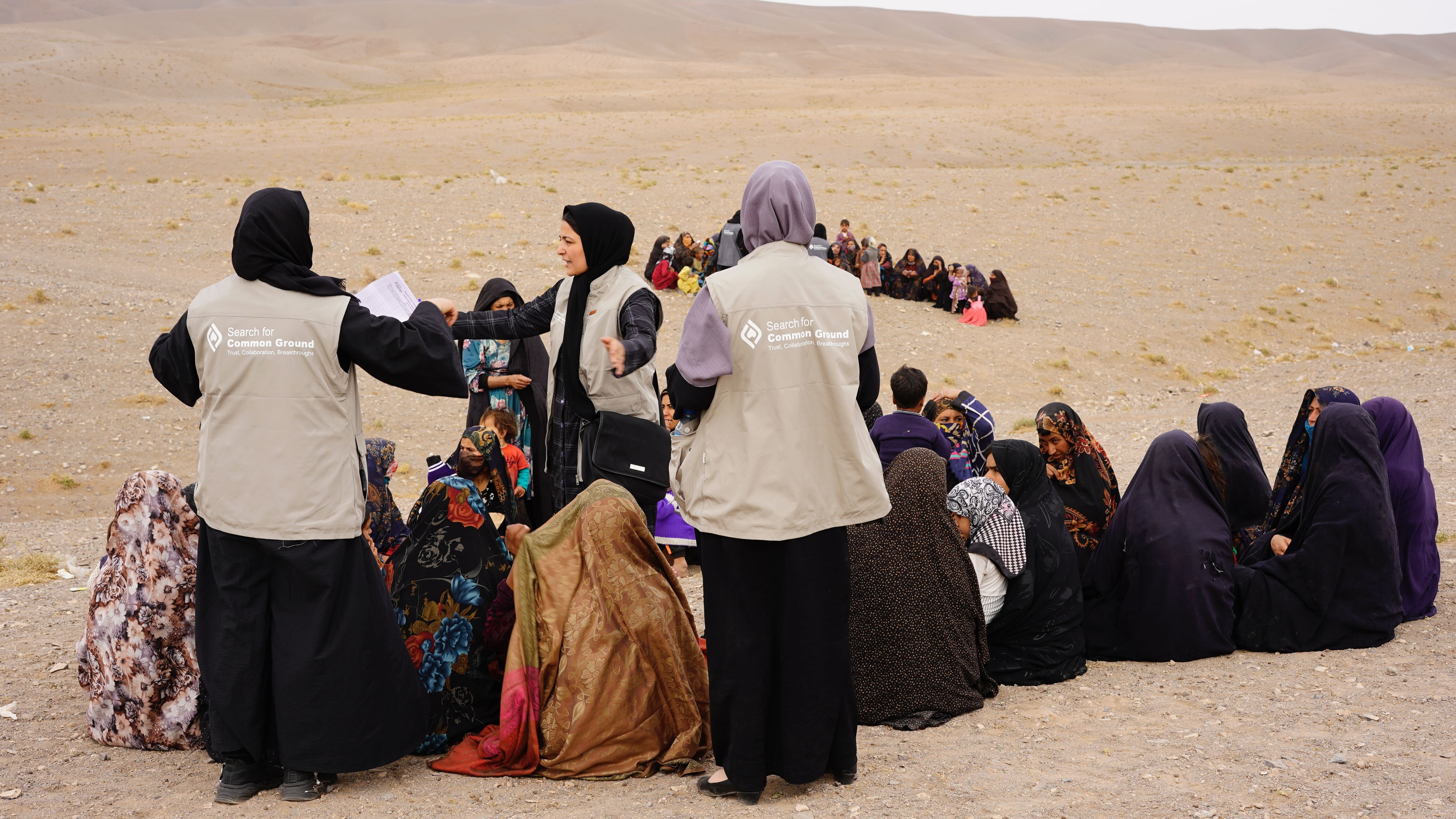
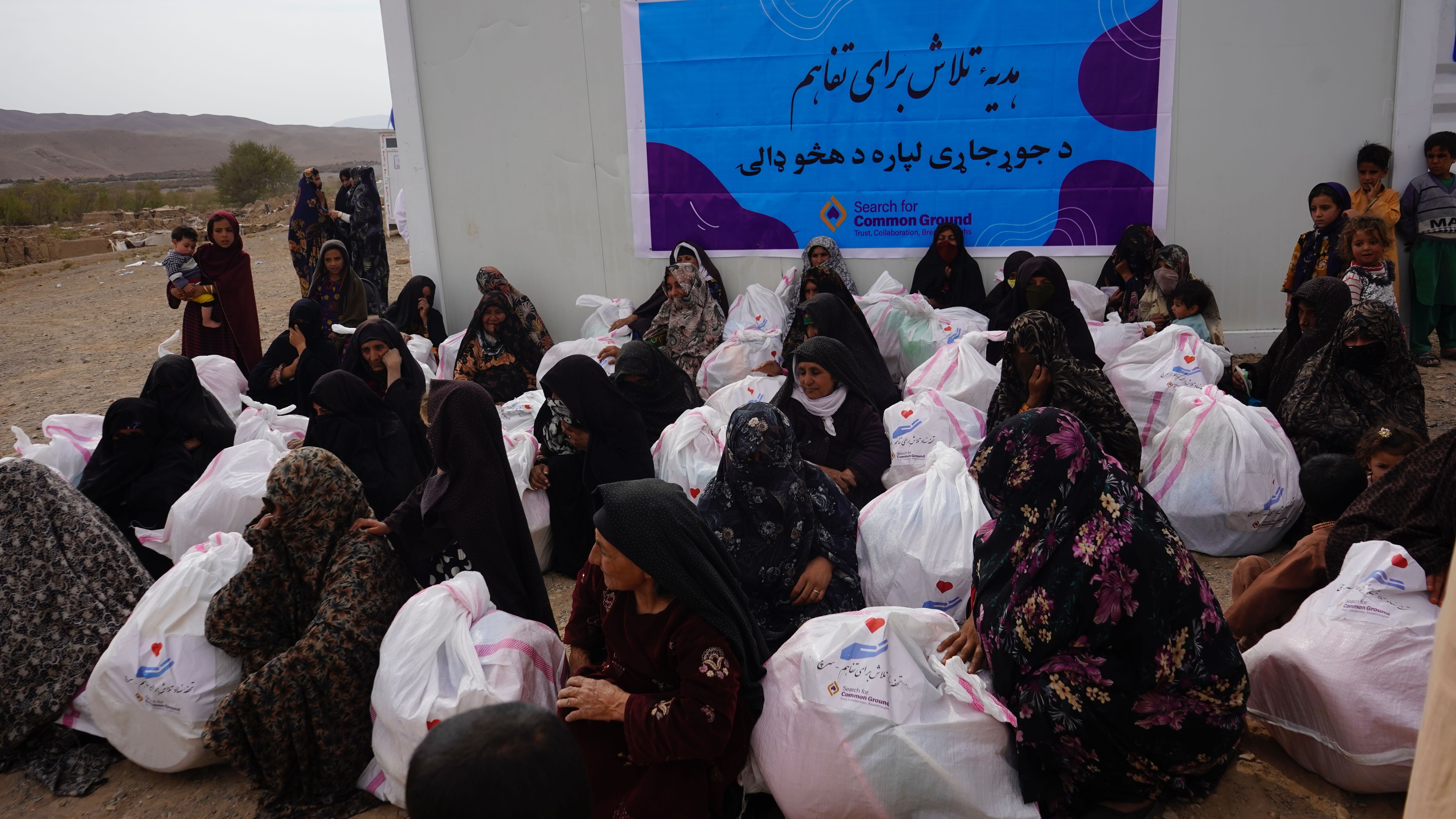
Surviving a life-taking natural disaster scars the heart. Many Afghans lost countless family members; some lost all their children. Others were buried under the rubble twice as multiple quakes plagued the Herat region. Still others have no homes, possessions, food, or medical care. That’s why we brought counselors to provide psychological first aid as well as traditional emergency relief. Thanks to your generosity, we’re able to treat the whole person, helping to heal the physical and the psychological. Bringing psycho-social support is the embodiment of loving anyway, of saying, “I see you.” Thank you for sticking with us in the tough places and doing the tough work of building peace.
This Giving Tuesday, Put People First

